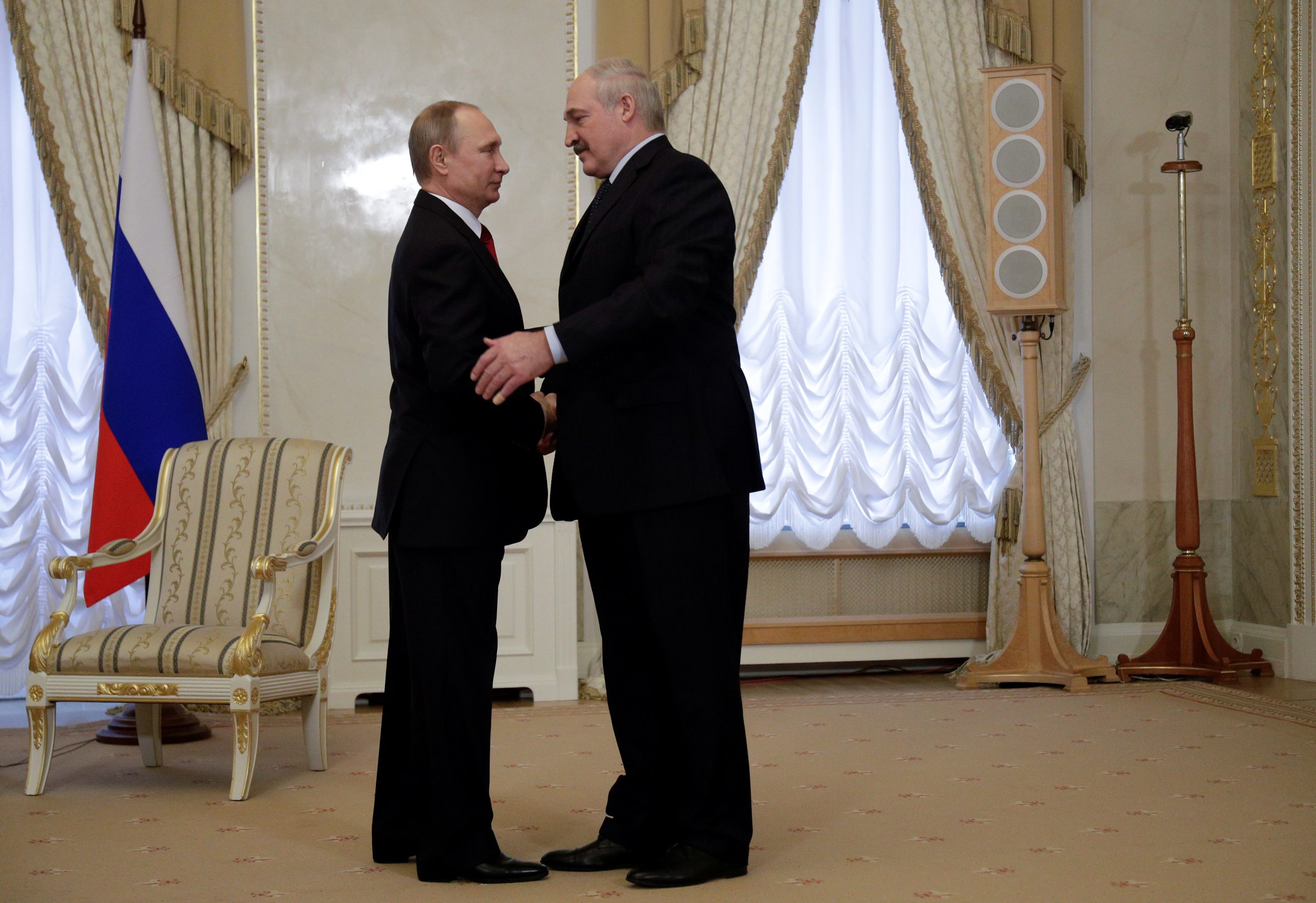Minsk and Moscow work on a compromise in oil and gas dispute
 The situation has not changed
The situation has not changed

Minsk and Moscow have come around to their original positions in a lingering energy dispute. Apparently, the Belarusian and Russian leaders have nullified mutual claims and moved towards a solution in the oil and gas dispute. For instance, the gas pricing formula would remain unchanged, but Russia would provide a discount for Belarus in 2018-2019 and compensate for losses in 2016-2017 by allowing Belarus to keep duties on re-export of Russian oil in her budget. Minsk is forced to accept curtailed rewards from the participation in the Eurasian integration and to lower financial and economic demands vis-a-vis the Kremlin.
Last week, Presidents Lukashenka and Putin agreed to resolve the oil and gas dispute between Belarus and Russia within the next ten days.
Based upon publicly announced mutual concessions, Russia and Belarus agreed to restore the status quo in economic relations as of early 2016, i.е. before the tension spiral widened in bilateral relations over gas, oil, border issues and access to the Russian market for Belarusian produces.
Minsk was prompted to acknowledge Belarus’ debt for Russian gas in exchange for refinancing of its debts on loans by Moscow. Until now, Belarus renounced her debt to Gazprom, and insisted on revising the gas pricing formula in order to lower the gas price in accordance with the Kremlin’s obligation to build a single energy market within the EEU framework. The fact that Minsk has actually admitted its debt means that it has accepted the gas pricing formula used by Russia and stopped insisting on a single energy market within the EEU. That said, the Kremlin has promised a discount on gas only in 2018-2019. Apparently, Russia would compensate for Belarus’ losses in 2016-2017 by transferring re-export duty on 6 million tons of Russian oil to the Belarusian budget.
The terms on which Russia would resume full oil supply to Belarus are nevertheless dim and require Belarus to repay the debt for gas supplies totalling more than USD 700 million. Meanwhile, Minsk managed to negotiate that it would drop the obligation to export one million tons of petrochemicals per year to Russia. Such exports are financially unprofitable for Belarus and were not carried out in full size neither in 2016 (267.655 thousand tons) nor in Q1 2017. Simultaneously, the volume of Russian oil processed at the Belarusian refineries would not increase and retain at 18 million tons.
Overall, Minsk was unable to ensure changes in the gas pricing formula in accordance with the Kremlin’s obligations in building a single energy market within the EEU, albeit it negotiated a discount for the next two years. The Kremlin is consistently diminishing the Eurasian integration benefits for Minsk, along with the revision of the transit services costs provided by Belarus, the border protection within the Union State and the military cooperation.
Subscribe to our newsletter




Situation in Belarus
Constitutional referendum: main consequences


 Video
Video
How to count the political prisoners: are the new criteria needed?


 Video
Video
Paternalism In Decline, Belarusian Euroscepticism, And The Influence Of Russia


 Video
Video












